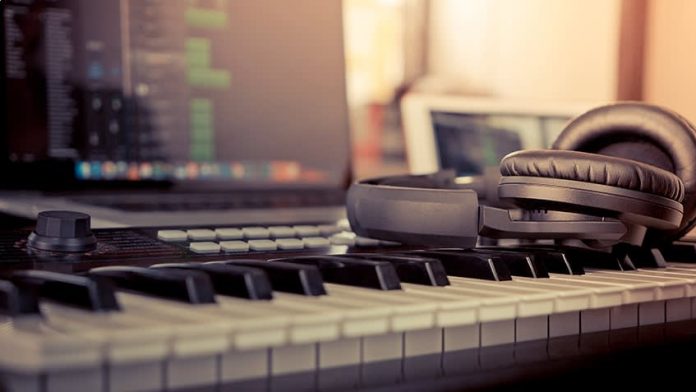This article has been written by Ashok Ram Kumar & Pratyusha Ganesh.
Table of Contents
Introduction
“Every new idea is just a mashup or a remix of one or more previous ideas.”– Austin Kleon
The past decade has seen a surge in the practice of putting pieces of existing art works together and remixing it to create a new work of art. Needless to say, there has also been an exponential increase in the copyright infringement cases with respect to such art. These events signal a trend in which remix has become a mainstream mode of creation, or ‘a behavioral norm in the digital era’ and ‘the characteristic pivot at the turn of our two centuries’.
As the users get more and more well-versed with the digital and internet technologies, the production of remixes and mashups including videos and fan-fictions, memes, collages and other media are widely seen on the internet and shared on social media platforms or on sites such as YouTube or SoundCloud to name a few.
Previously, these incidents used to go unnoticed and the Copyright owners did not pay attention to the remixes that were produced using their original composition. Now that such remixes are surfacing the internet and are forming an economic threat to the original composers, the intolerance towards such work is increasing and the infringement cases are on the verge.
As the 21st century keeps witnessing more and more remix versions of legendary music, it is the need of the hour to determine the legal position and legislations that safeguard the interests of the original composer as well as the author of the remixed work.
This article will dive into the current legal position of remixes in the Indian music industry.
Musical work & the position of remix under the Copyright Act
Musical Work under the Copyright Law
The Indian Copyright Act, 1957, under its section 2 (P) defines musical work to include, “a work consisting of music and also includes graphical notations of such work”. However, it does not include any word or an action that is intended to be sung, spoken or performed with the music.
In the landmark case of Gramophone Company of India vs. Super Cassette Industries Ltd, the Delhi High Court observed that, “Musical work is not merely a combination of melody and harmony or either of them. Every musical composition has a structure, or shape that is the arrangement of individual elements so as-to constitute a whole and that musical notation means a visual instruction for performance of music.”
S14(e) of the Copyright legislation provides the owner of the sound recording with the right to make any other sound recording embodying it, the right to sell or give on hire, or offer for sale or hire, any copy of the sound recording (whether the same had been sold or hired in the past) and the right to communicate the sound recording to the public at large.
Unfortunately, the Indian Copyright Act does not specify the meaning/definition of the term “Remix”. This has caused a lot of misperception and seems to be a major concern in the legislation.
According to the Traditional definition, Remix is an alteration of just the beats and the tempo of an old published song with minor additions and subtractions to the melody and lyrics of the song.
The question that needs urgent addressing is whether a Remix constitutes a new sound recording or a modification of the original work?
A Remixed work is considered to be a novel creation of the author and it is only justified to provide it with the same protection that other original/novel works receive.
Many legal professionals, scholars and musicians are of the opinion that the alteration and re-recording of the song makes it a new work of art and the author of such a work deserved the protection of his work against public exploitation. Hence, the copyright of the remixed creation shall lie with the author of such a creation and not the original composer.
Remix under Copyright law
The current legislation protects the “adaption” of a musical work, i.e.; any arrangement or transcription of an existing musical work is protected under the Copyright Act. In contrast to the opinions of the scholars, a Remix falls under the purview “adaptation” of the old song as it encompasses a “rearrangement” or an “alteration” of the literary and musical portions of the song, without certainly re-creating it or re-performing it.
Fortunately, or unfortunately, the Indian Music Industry is still using and generalizing the term “Remix” for a “Remake”, “Mash-up” or a “Recreation” which is incorrect and causes confusion in the minds of the common man and also with respect to the judicial pronouncements.
One such pronouncement was that of the Delhi High Court in the case of “Myspace vs Super Cassettes Industries Ltd” which considered a Remix to be “a combination of two songs”.
How to not constitute infringement? A guide for the artists
In order to not constitute infringement, the author of the Remix needs to take permission from the artist/ the author of the original song as well as the label representing him as there is a use of the original sound recording as well as the composition of the original song.
In case a producer is approached by an artist or a label to make a remix of their composition, it can be called an “Official Remix”. In such cases, the producer is allowed to retain the royalties generated from the remix track as it amounts to the creation of a derivative work from an original work which is copyright protected.
However, these permissions are not required by a DJ who remixes music at a live event until and unless he incurs some commercial gain from it. For instance, if the DJ decides to monetize on the remix by recording himself and putting it up on the intent, for people to download/ buy online, it would amount to an infringement, unless the permissions are granted to him.
The point to note here is the importance of giving credits and taking permission regardless of the amount of work used.
It is also observed that there have been instances in the past where some remixes have been more popular than the original composition and they haven’t been sued or said to be infringing because apart from the commercial success, the power to sue lies entirely and solely with the copyright holder.
Additionally, after thorough research, the following seem to be the only exceptions and instances when permission is not necessary:
- If the song is in public domain – both masters and publishing.
- Fair use: if you’re using the song for educational/ research purposes, reporting as news, political or social commentary or satire/ parody.
- If the song is available under a Creative Commons license: If the work fails to fall under the purview of any of the above three categories, it is recommended to get the necessary permissions from the artist and/ or their management.
There definitely is a lack of clarity and a huge grey area so for now, we will have to manage by looking at the loopholes until there is a successful amendment which specifies.
Takeaways
It can be concluded that a Remix constitutes a separate genre of music in the digital era and deserves the same protection as the other works. Innumerable issues have arisen in the tug of war between the copyright holders and their so-called infringers- the remix maker but the number of independent artists publishing remixes has only been on the rise. The legal status of remix remains uncertain.
There is a desperate need for the amendment of legislations with respect to Copyrights as the legal status of a remix is still uncertain. The law needs to be more relevant and must provide for the protection of the interests of both- the owner of the original song and the maker of the remix.
Additionally, the importance of technology should be recognized and there is a dire need to provide solutions for a statutory licensing system and a fixed rate for royalties.
The future will only see more and more evolution of art forms, the creative interest of the artists must be protected to promote and foster creativity.
“The world has entered the age of remix, and so should copyright law.”
LawSikho has created a telegram group for exchanging legal knowledge, referrals and various opportunities. You can click on this link and join:
 Serato DJ Crack 2025Serato DJ PRO Crack
Serato DJ Crack 2025Serato DJ PRO Crack











 Allow notifications
Allow notifications


